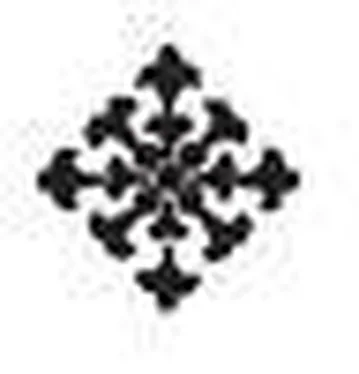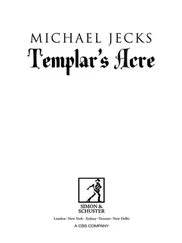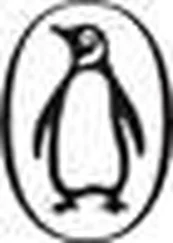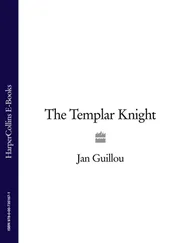C. Palov - Templar's Code
Здесь есть возможность читать онлайн «C. Palov - Templar's Code» весь текст электронной книги совершенно бесплатно (целиком полную версию без сокращений). В некоторых случаях можно слушать аудио, скачать через торрент в формате fb2 и присутствует краткое содержание. Год выпуска: 0101, Издательство: Penguin Group USA, Inc., Жанр: Старинная литература, на английском языке. Описание произведения, (предисловие) а так же отзывы посетителей доступны на портале библиотеки ЛибКат.
- Название:Templar's Code
- Автор:
- Издательство:Penguin Group USA, Inc.
- Жанр:
- Год:0101
- ISBN:нет данных
- Рейтинг книги:5 / 5. Голосов: 1
-
Избранное:Добавить в избранное
- Отзывы:
-
Ваша оценка:
- 100
- 1
- 2
- 3
- 4
- 5
Templar's Code: краткое содержание, описание и аннотация
Предлагаем к чтению аннотацию, описание, краткое содержание или предисловие (зависит от того, что написал сам автор книги «Templar's Code»). Если вы не нашли необходимую информацию о книге — напишите в комментариях, мы постараемся отыскать её.
During the Middle Ages a rumor was born about a mysterious and sacred Ancient Egyptian text. Known as the Emerald Tablet, it was said to contain the secret of creation.
But the greatest secret of all is who wrote it...
Templar's Code — читать онлайн бесплатно полную книгу (весь текст) целиком
Ниже представлен текст книги, разбитый по страницам. Система сохранения места последней прочитанной страницы, позволяет с удобством читать онлайн бесплатно книгу «Templar's Code», без необходимости каждый раз заново искать на чём Вы остановились. Поставьте закладку, и сможете в любой момент перейти на страницу, на которой закончили чтение.
Интервал:
Закладка:
Admittedly taken aback, Rubin could see that, like the kouroi of ancient Greece, his beautiful visitor was the living, breathing embodiment of the ideal male form.
For several moments they mutely stared at one another.
The beautiful stranger smiled. “I’m Saviour Panos. We have an eleven o’clock appointment. Please accept my apology for being a few minutes late. I hope that you weren’t inconvenienced.”
“Not in the least,” Rubin assured him. He tugged at the bottom of his vest, self-consciously aware of his middle-aged paunch.
“May I come inside?”
“Where are my manners? Of course, please come in,” Rubin invited. Then, as an afterthought, he added, “I trust that you like martinis.”

CHAPTER 58
“. . . and Benjamin Franklin’s code name was Moses.”
“Indeed?”
“Yeah, no kidding.” Edie scooted her chair closer to the flat-screened monitor.
To get out of the rain, she and Caedmon had ducked into an Internet café called Pie-Ro-Mania. Owned and operated by an American expat, the joint billed itself as a “No Latte Zone” that served dark-roast coffee and homemade pie by the slice. The décor was equally bare-bones with several rows of conference tables lined with monitors and keyboards. The music—Muddy Waters—and the incredibly flaky piecrust more than compensated for the spartan design. She’d ordered pecan with a big dollop of whipped cream.
“The whole time that he was living at the town house on Craven Street, ol’ Ben was engaged in high-level espionage activities,” Edie continued. She hurriedly ripped open a cellophane package with plastic cutlery, anxious for a sugar fix. “Those were the turbulent years leading up to the Revolution. And, according to the biography that I read a few years back, Franklin used the secret code name ‘Moses.’ ”
“Which explains why he titled the hidden pages The Book of Moses. It’s a tongue-in-cheek reference to his espionage activities.”
“Okay, book title explained. But what I want to know is how did Franklin get a hold of the Bacon frontispiece? Ohmygosh! This is to die for,” she exclaimed around a mouthful of pie. “You sure you don’t want some?” She extended her plastic fork in Caedmon’s direction.
He politely shook his head, clearly spooked by the idea of so much corn syrup having gone into a single slice of pie. “Perhaps Franklin’s enigmatically titled missive will shed some light.” Caedmon opened the leather pouch and carefully removed the dozen or so sheets of thick old-fashioned paper. “Let’s have a go at the missive, shall we?”
“Since we have no idea as to the contents, I think we should read this quietly at our desks rather than reciting it aloud.”
Caedmon inched his chair closer to hers. “I agree. Sub rosa.”
The Book of MosesLondon March 17, 1775
I write this missive in haste, fearful that the bloody backs will barge through the entry at any moment, an arrest warrant in one hand and a length of rope in the other. Lest I be accused of fraudulent alienations, a principal offender of the Crown, in word and deed, I am transcribing an account of my actions during the years 1724 to 1775.
The particulars of my life story are familiar enough to readers of my scribblings. While I wrote naught but the truth in my autobiography, I am guilty of having spun a lie of omission. The lapse involves my arrival in London in 1724. A penniless lad, a mere eighteen winters upon my head, I apprenticed myself to one John Watts, a printer by trade. My lodgings, though sparse, did accommodate most comfortably, youth more accepting of privation. Endowed with a prying nature, I spent my evenings combing through the stacks of printed material housed in the shop storeroom. Which is how I happened upon an incised plate that I recognized as a frontispiece. Curious, I inked the plate and drew a print, surprised to find myself holding a frontispiece for the New Atlantis by Sir Francis Bacon. My attention was immediately drawn to a glaring inaccuracy: the date incised onto the plate. I had more than a passing familiarity with the work in question, having read the volume the year prior. Therefore, I knew that it had been published in 1627, not 1614 as indicated on the frontispiece. Surely the graver made grave error.
Thinking the illustration a fine work of art nonetheless, I tacked it onto the wall beside my cot. Innumerable nights I stared upon those muses before I realized that the date was not the engraving’s only error. Indeed, there seemed to be a glaring number of mistakes. Which led me to deduce that a message was hidden within those inconsistencies. Soon enough, I discovered a numeric cipher, which, when translated into the Latin alphabet, read ‘Moses Egypticus mined Thoths stone.’ I did not know it at the time, but that curious message would one day change the course of my life.
In truth, ’twas a strange riddle, one I could not penetrate. Though I did strenuously attempt the feat, burning my Betty lamp into the wee hours, books a lonely man’s steadfast companion. From my reading, I ascertained that “Thoth’s stone” referred to an ancient relic known as the Emerald Tablet and that this relic had been much coveted during the Middle Ages. Particularly in alchemical circles. I also knew from my reading of the Bible that Moses, the Hebrew patriarch, was trained in all the arts of Egypt. Was it possible that during ancient times, no less a personage than Moses had this relic in his possession and that centuries later it had been bequeathed to Sir Francis Bacon? If so, what happened to the sacred relic upon Sir Francis’s death?
While those questions bedeviled me, I grew desirous of more animated companions than my growing collection of leather-bound volumes and soon began to patronize the coffeehouses of London. At each week’s end, meager earnings in hand, I traded my black bib and apron for beggar’s velvet, and made straightway for St. Paul’s coffeehouse, where, for a modest admission, I could enjoy the exalted company of poets, writers, and the like.
The ease with which the coffeehouse habitués bandied ideas, both scientific and arcane, astounded me. One night, hoping to impress, I mentioned the Bacon frontispiece and the hidden cipher to a newly formed acquaintance. Aghast, the man informed me that I would be wise not to make mention of this in so public a place. Rather than dampen, this ominous warning aroused my curiosity. Over the course of many months, I gently probed the clientele of St. Paul’s. While a strong brew heightened a man’s faculties, I discovered that, inundated with spiritous drink, that same man’s faculties fled for higher ground. Indeed, I was privy to many a drunken murmuring, the common thread being the Freemasons. One saturated fellow did let slip that the Freemasons were the guardians of a sacred relic that they inherited from a well-known English nobleman. A lofty claim. One I would have rejected outright had it not been for the encryption on the frontispiece. I gently pressed the matter, but my drunken companion refused to give up the prize. Struck by divine inspiration, I vowed to join the ranks of the Freemasons. What better way to siphon from that well-guarded well of knowledge?
In 1726, I returned to Philadelphia and eventually secured an invitation to join the Grand Lodge of Free and Accepted Masons. The secret proceedings were carried out with an air of constipated gravitas, and I was forced to swallow many an amused guffaw. What man would not be struck by the patent absurdity of a Philadelphia merchant claiming descent from sun-worshipping Egyptians? Not content to stop there, my brethren did maintain that the mysticism of the Nile had a guiding hand in the construction of Solomon’s Temple. Even going so far as to claim that behind each of history’s great achievements, there beamed the illuminating rays of the Light, the name they bestowed upon God Almighty. Who but an itinerant simpleton would proclaim as truth such outlandish assertions? Or spout incomprehensible drivel and pass it off as “knowledge.” To my great disappointment, I soon came to realize that the members of the Philadelphia Lodge had no knowledge of Francis Bacon or his sacred relic. However, the inane rituals and silly natterings did serve a purpose, namely to open the doors of Philadelphia’s most exclusive drawing rooms, providing me with the entrée denied by birth. Where men of high standing once turned a blind eye, they now greeted me with open arms.
Читать дальшеИнтервал:
Закладка:
Похожие книги на «Templar's Code»
Представляем Вашему вниманию похожие книги на «Templar's Code» списком для выбора. Мы отобрали схожую по названию и смыслу литературу в надежде предоставить читателям больше вариантов отыскать новые, интересные, ещё непрочитанные произведения.
Обсуждение, отзывы о книге «Templar's Code» и просто собственные мнения читателей. Оставьте ваши комментарии, напишите, что Вы думаете о произведении, его смысле или главных героях. Укажите что конкретно понравилось, а что нет, и почему Вы так считаете.












